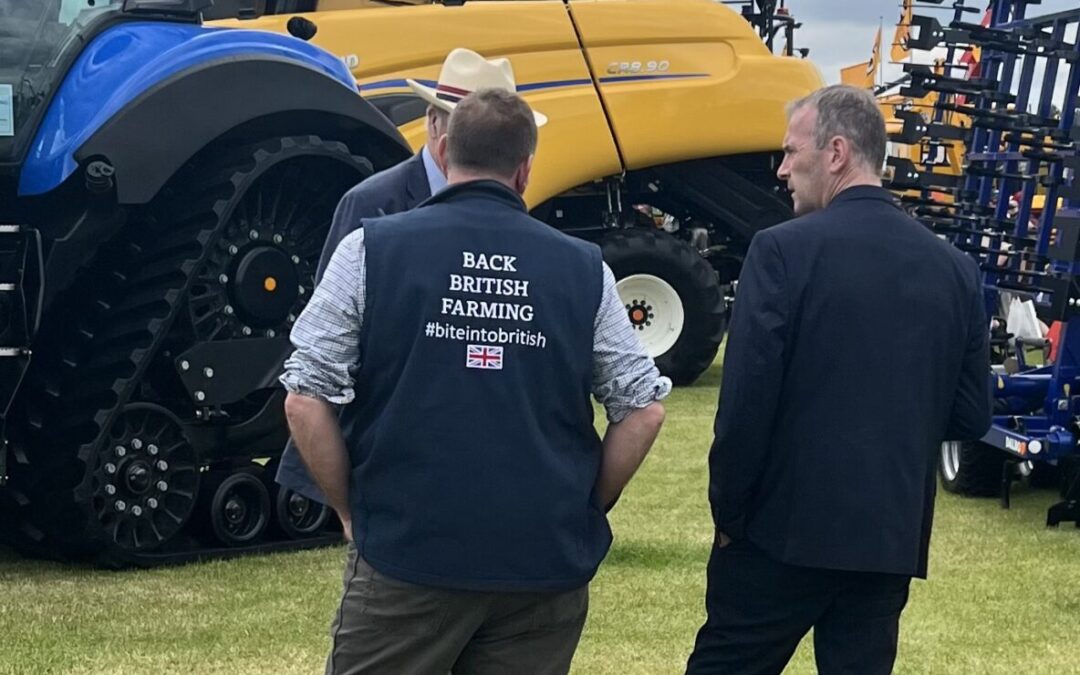RPG’s summer tour of agricultural shows
Rural Policy Group (RPG) and MHA have gone on tour this summer to find out what Britain’s farmers need from the incoming government.
The policy group and business advisory practice have teamed up to visit some of the country’s most loved agricultural shows where they are meeting farmers on their home turf, to discuss why the UK is producing less food and what the new inhabitants of Downing Street can do to reverse the decline.
The tour started at the South of England Show in Ardingly, Sussex on 7th June. MHA was joined by Virgin Money, Knight Frank and the NFU to discuss the commercial aspects of sustainable farming.
The tour then moved to the Lincolnshire Show on 19th June to hear what farmers in the Midlands and North East had to say about the state of agriculture. Here RPG was joined by speakers from the NFU, Savills, Lincoln Istitute of Agri-Food Technology and farmer Andrew Ward MBE.
Falling agricultural production and the rise of empty shelves
Over the past 18 months British consumers have twice faced empty shelves and rationing when shopping for essentials such as eggs and salad vegetables, and some meat products are now being tagged with anti-theft devices on the shelf. Farmers want to produce high quality, affordable food but they need to be profitable to stay in business. The cost-of-living crisis has led to significant food price inflation and actions to address this, coupled with the rising cost of inputs, has suppressed supply chain margins. The reduction in area-based government payments to farmers too has created a ‘perfect storm’ placing farm finances, particularly cash flow, under extreme pressure.
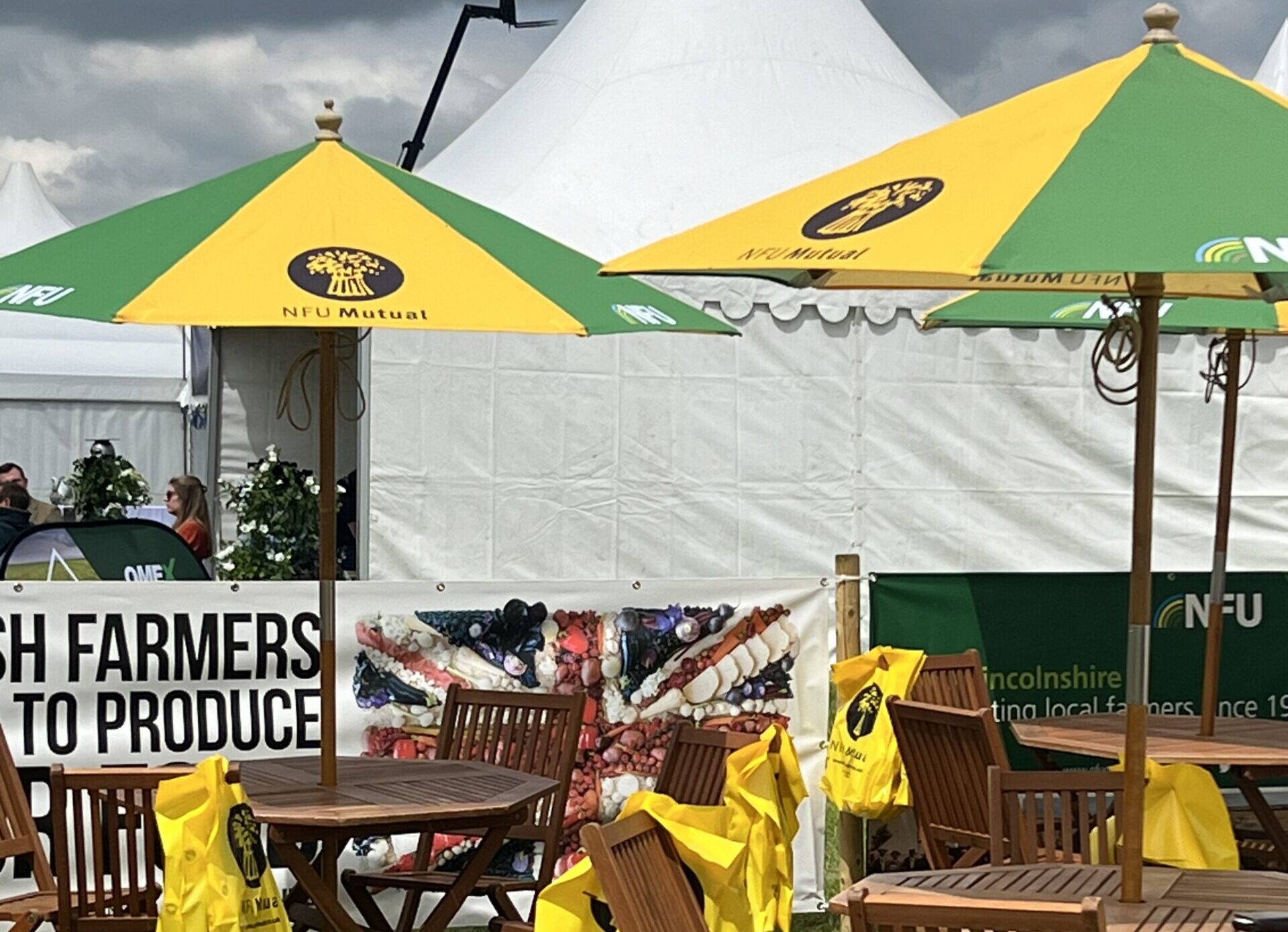
Lincolnshire’s asks of the new government: 1. invest in food production
Lincolnshire is one of the most strategically important agricultural counties and provides 27% of the vegetables consumed in the UK, as well as being home to the UK Food Valley. RPG and the Greater Lincolnshire LEP published an in-depth analysis of the agri-food supply chain in Lincolnshire in 2023 and we were keen to return.
At the event, which was facilitated by NFU Midlands, a panel of industry experts gave us their number one ask of government come the 5th of July.
Tom Bradshaw, NFU President: “We need to recognise our food supply is vulnerable. Investing in domestic food production today is our food security tomorrow. We need a thriving, profitable and productive food sector which delivers for the environment and enables farmers to reinvest in their businesses for the future”.
The President of the NFU, which represents over 47,000 farmers and growers, touched on the importance of food security to national security at a time when war in Europe and the UK’s exit from the European Union has challenged global supply chains and created a level of price volatility not seen in a generation. Greater self-sufficiency would give the UK greater control over food pricing, the environmental impact of the food we consume and protect families from the lower quality imports being allowed into our shopping baskets. We can only achieve these goals if farmers are supported by government to grow food profitably, otherwise the trend towards declining production volumes will continue and we will see more land and expertise exit the sector.
Ask 2. take a longer term and more collaborative approach to planning and investment
Kelly Hewson-Fisher, Head of Rural and Research, Savills and Chair of the Lincolnshire Farming Conference: “Farming would benefit from long-term cross-party working that extends beyond the 5-year election cycle. More immediately, we need government to look at the investment required to meet the demands on farming and agricultural land, and ways in which it can work with industry to bring clarity and confidence to unlock private investment”.
As a senior representative of one the country’s leading rural property and land services consultancies, Hewson-Fisher made it clear that a balanced land use framework was needed for a secure food future. Farmers have been left reeling from a series of economic shocks and policy U-turns which have hampered their ability to invest in food production and led them to seek out less risky and more profitable uses for their land. Farms are businesses and like any business they need to know what’s around the corner so they can plan their investments. Unlike many other parts of the economy, farmers will be looking up to 7 years ahead when planning their rotations and calculating investments and cashflows. Government needs to match or improve upon those timescales to stimulate private investment and demonstrate consistency in its policies to rebuild trust and confidence with the sector.
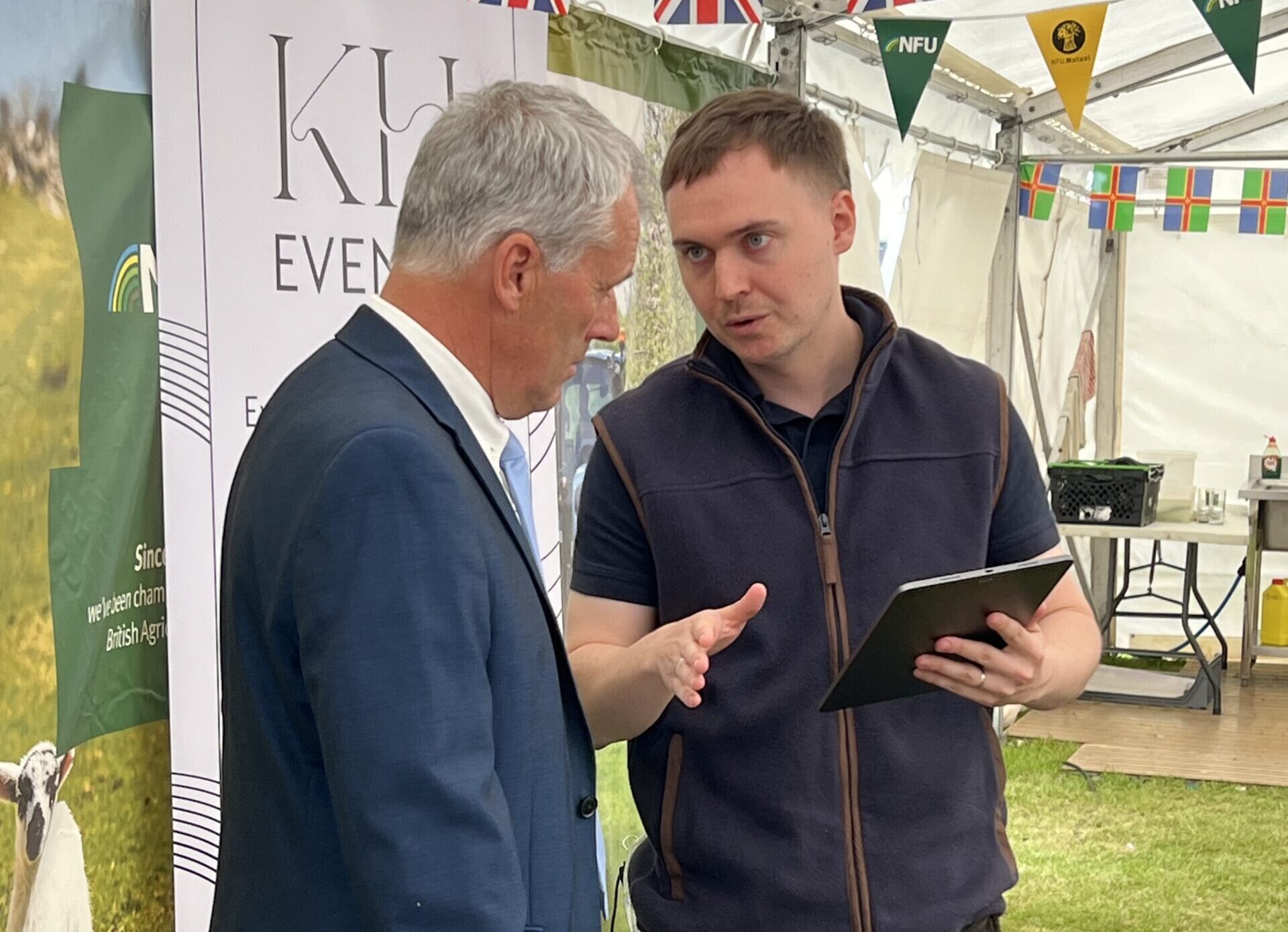
Ask 3. recognise the importance of nutritional security and its benefits to public health
Louise Manning, Professor of Sustainable Agri-Food Systems at the Lincoln Institute of Agri-Food Technology (LIAT), part of the University of Lincoln: “We need to truly consider not only food security but also nutritional security, and how British growers can contribute to safe, affordable and nutritious food that can be consumed in the UK and across the world”.
Manning, part of a multi-disciplinary team at the renowned agritech research centre, highlighted the valuable contribution agriculture makes to people’s health and livelihoods. In Lincolnshire a third of the workforce is employed in the food supply chain, which starts with our primary producers, the farmers, growers and fishermen who harvest our natural resources. Nationally the agri-food supply chain is worth £146 billion to the UK economy, however its value to public health is immeasurable. A better diet will result in less demand for NHS services, lower levels of sickness absence from work and higher levels of productivity across the whole economy, along with benefits to our feeling of wellbeing.
Ask 4. invest in agritech research and development
Government has a role in supporting and funding the research into scientific and technological advances undertaken at centres such as LIAT. Their work will be critical to making the leaps in productivity and efficiency necessary to deliver an affordable food supply with a positive environmental impact. Crucially they are working to ensure this can be achieved with fairer returns to farmers.
Based in leafy Riseholme, LIAT is undertaking industry leading research into robotics, automation, AI and other digital innovations to boost productivity and environmental sustainability in agri-food production. Exciting developments such as autonomous harvesting and agri-robotics are being developed to alleviate the impact of labour shortages and improve efficiency in farm operations. Gene editing trials for crops may be controversial in some quarters but the benefits for nutritional content, disease resistance, higher yields and suitability to our changing climate cannot be easily overlooked. And smaller but no less business-critical innovations such as sensors and drones allow farmers to measure and manage their inputs and outputs with greater accuracy. But to access these benefits, farmers must first invest and as the saying goes, you can’t go green when you’re in the red.
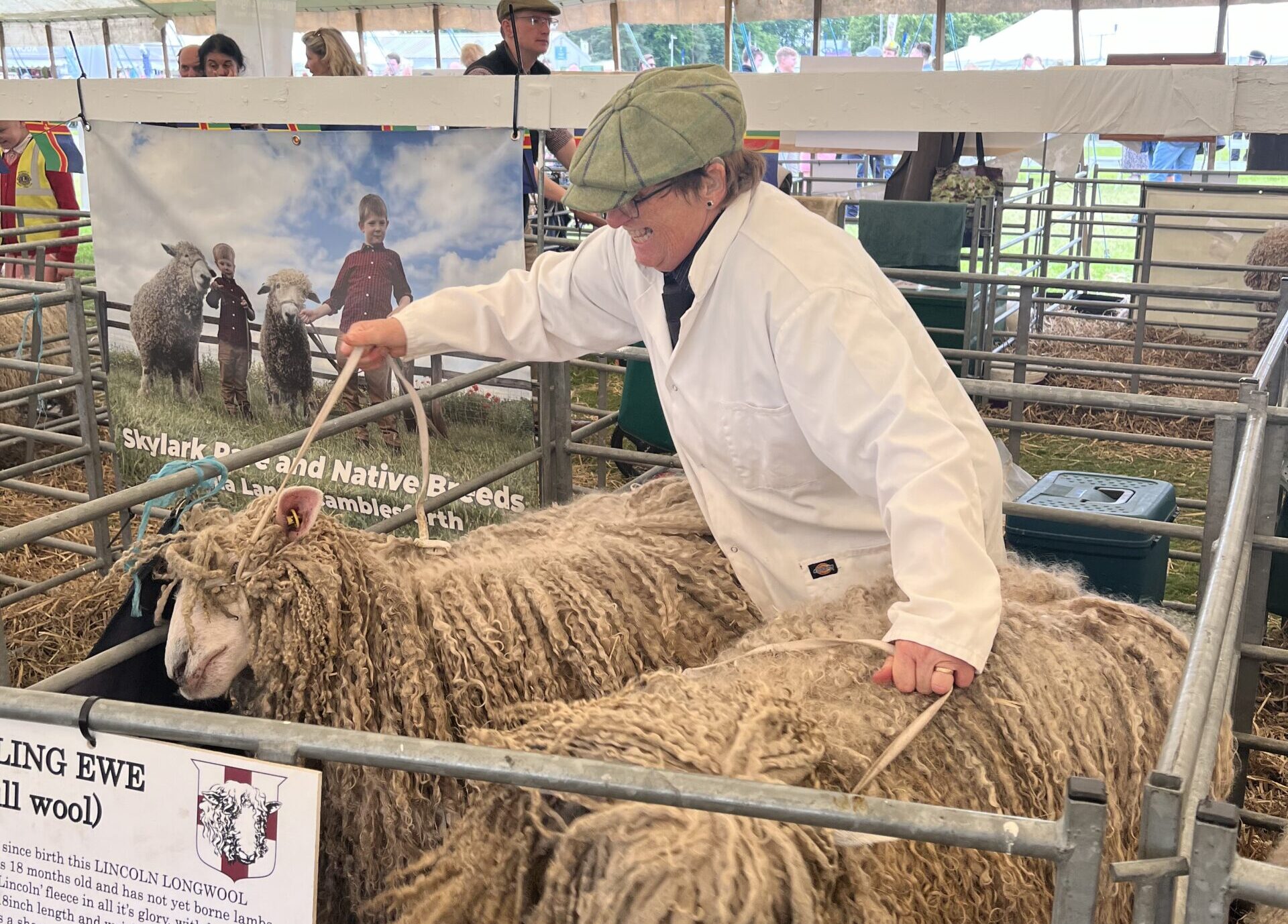
Ask 5. fair trade for British farmers and growers
Andrew Ward MBE, Managing Director of Roy Ward Farms Ltd, has started growing Capulet beans, a British-bred variety of haricot beans, on some of his 1,500 acres in Leadenham to help the UK become less reliant on imports for baked beans. The British are some of the biggest baked bean eaters in the world, consuming 2 million tins a day, which is equivalent to 300 tonnes per day.
Ward said: “As a British farmer I produce food to a world-beating standard and often with my hands tied behind my back by regulation, but imports produced in ways which are banned here are allowed into the country. I’d like to see a level playing field where imported food matches the high quality we produce at home and consumers are guaranteed the best product”.
When British egg supplies dried up due to rising energy and feed costs in late 2023, lower quality imports were brought in from across Europe to fill the gap. Some with Food Standards Agency (FSA) mandated salmonella warnings on the boxes, others produced using a caged system which has been banned in the UK for a decade on animal welfare grounds. In February 2023, we failed to secure adequate supplies of salad crops from our usual sources in the Mediterranean Basin when their own yields were low due to a severe drought in the region. Climate change is causing more extreme weather more frequently and when our trading partners experience a shortfall in their harvests, they will feed themselves first. It is a misconception to think British producers can be substituted with imports. Farmers and consumers will benefit from the next government valuing home-grown produce and the food standards built up by generations of farmers. Extreme weather events are happening much closer to home too.
Ask 6. act on our waterways
Farmers in the low-lying and flat Lincolnshire landscape are on the front line of climate change. Andrew Ward MBE shared that 500 of his 1,500 acres are currently not growing a crop due to persistent wet weather since September 2023. Due to the bare land and poor yields there could be a shortages of crops for breakfast cereals, breads and cooking oils. And without the harvest, there will be a shortage of straw to feed livestock this winter. A more considered approach to funding allocations for the maintenance of waterways and systems, and more importance placed on schedules of work are essential to develop the infrastructure which will make the food system more resilient to flood risks.
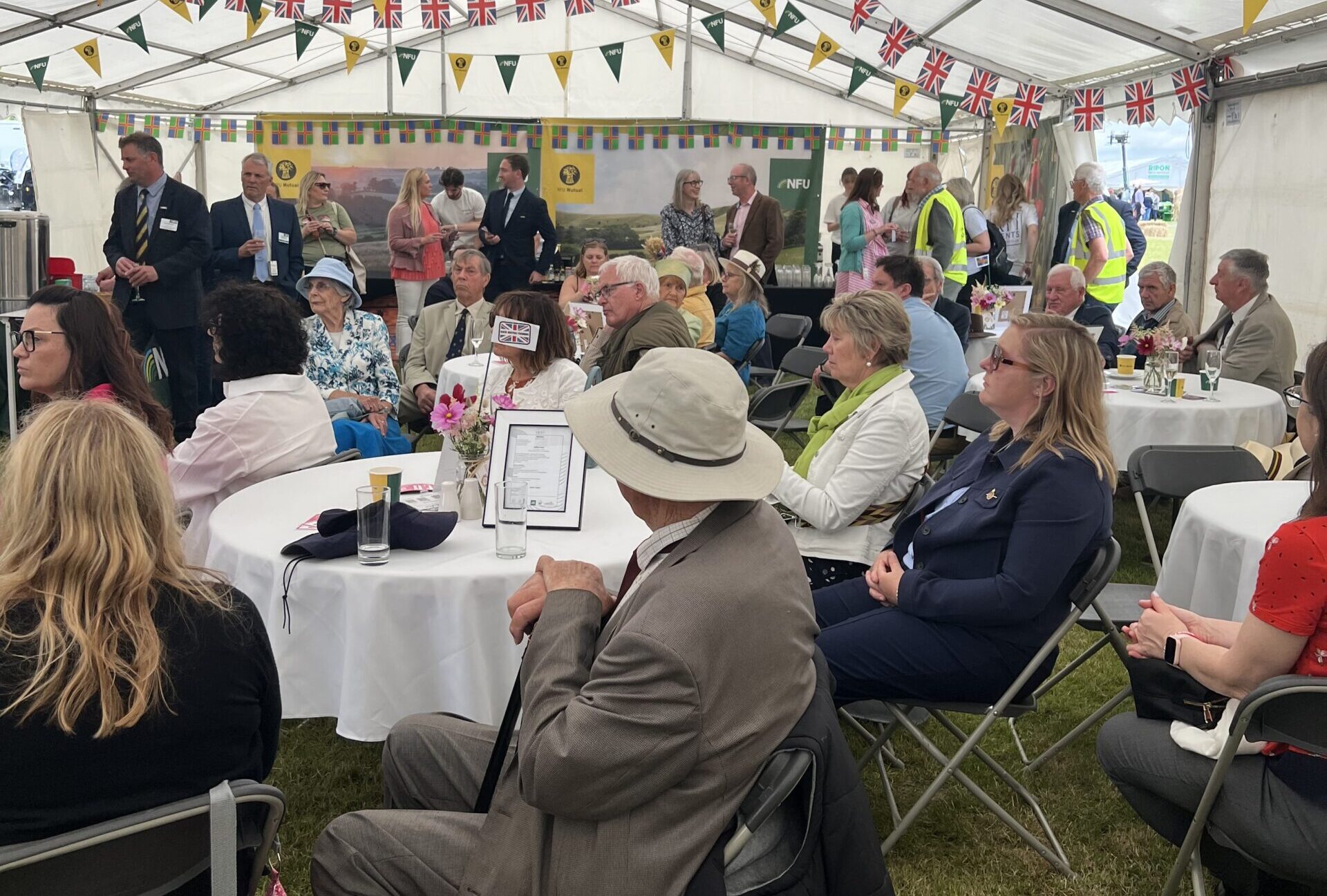
Ask 7. bring profitability back to food production
After the event Sarah Dodds, Partner and Head of Agriculture at MHA, the UK member of Baker Tilley International, shared her thoughts on how policy could better support the farming sector.
Dodds is based at the accountancy firm’s agribusiness HQ in Peterborough and farms with her husband in Lincolnshire: “As business advisors and accountants to the farming sector, we have a deep understanding of the challenges facing modern agribusiness. Simply, not enough farmers are able to make money out of food. We see a lot of farms diversifying into solar, commercial rentals and other activities to try and keep other parts of the farm in production, but until food becomes profitable again farmers will reluctantly continue to find alternative uses for their land. Food has historically been subsidised through farm payments and with the move away from that model, food pricing is due for a review”.
The exit from the European Union heralded a transition away from the Common Agricultural Policy and a redesign of farm funding. Food subsidies were out and a new system of payments for public goods was in. The Environmental Land Management Scheme (ELMS) was intended to incentivise more sustainable farming methods with a focus on water and soil quality, biodiversity and nature recovery. UK farming is ambitious to lower its environmental impact and reduce its carbon footprint, but the schemes with the greatest impact and reward are almost entirely distinct from growing food. Making food production commercially viable on land redeployed into large-scale ELMS schemes will require innovation. Agroforestry trials are underway to make best use of newly planted forests and one trial is showing promising results for animal feed crops. Similar trials are needed to understand whether commercial crops can successfully be grown on restored peatland.
However, we need to make sustainable farming initiatives work and one way is for the government to release Farm Recovery Fund Money urgently to support cashflows. Another is to offer profitability incentives for regenerative farming in commercial contracts. Supply chain pressures are also coming to bear on farmers to reduce their emissions. Underpinning the commerciality is the need to establish a set of standards and metrics by which ELMS and regenerative practices can be measured, so that farmers can mange the processes and quantify their environmental output.
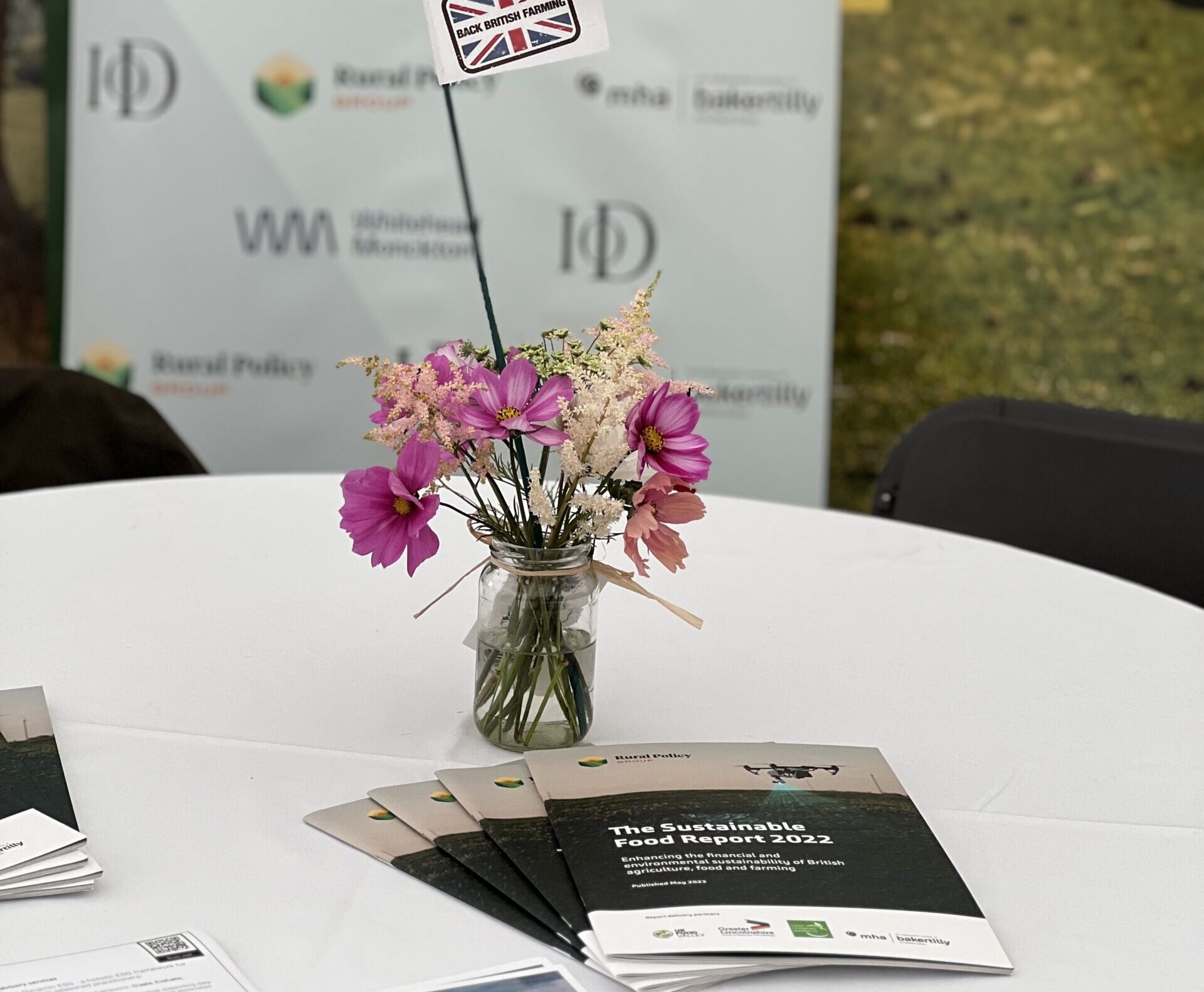
Read the Sustainable Food Report 2022
Featuring an in-depth analysis of the Lincolnshire food economy and the UK Food Valley.
Katie Tucker, Executive Director of the Rural Policy Group and one of the report’s authors: “I was delighted to work so closely with the NFU in Lincolnshire and the panellists to deliver this important discussion at the Lincolnshire Show. Lincolnshire’s farmers are strategic assets in the fight for a financially and environmentally sustainable food system and it is imperative the government listens to their concerns about the viability of their businesses and their ability to continue producing food in years to come”.
Hear what the Lincolnshire farming community had to say in their own words…
Tom Bradshaw, NFU President, Louise Manning, Professor at LIAT and Andrew Ward MBE, Founder of Forage Aid, Wardys Waffle You Tube Blogger and Farmer.

